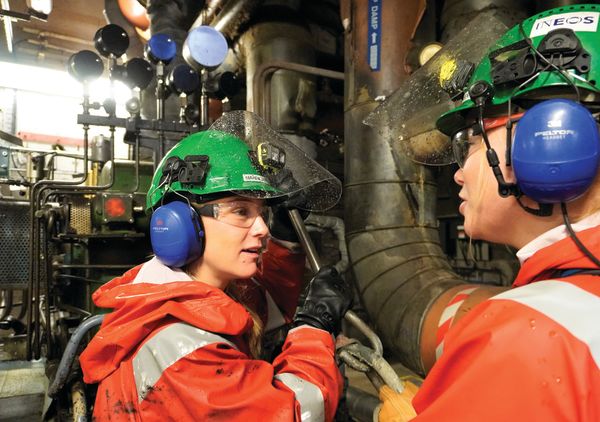
**A Decade of Hydrogen Fuel Cell Advancements Devastated in Possible Arson Incident**
A groundbreaking scientific initiative aimed at transforming clean energy by converting organic waste into usable power has faced a significant setback. Luke Evans, a PhD candidate at the University of Liverpool and the founder of Scintilla, experienced the loss of over ten years of research and technological progress, which was consumed by flames in a suspected arson event. This occurrence has left both the scientific community and advocates for renewable energy reeling, representing a major obstacle for technology viewed as crucial for addressing climate change and curbing reliance on fossil fuels.
### The Incident Unfolds
Two months prior to submitting his PhD thesis, Evans received alarming news on January 10th—that his research space within a community recycling center known as *The Bridge* in Wavertree, Merseyside, had been entirely engulfed in fire.
In an interview with *The Guardian*, Evans expressed his emotional turmoil regarding the incident. “I couldn’t believe this occurred at such a critical moment,” he stated. “All my experimental data and the apparatus for conducting those experiments were inside; notebooks, hard drives, SIM cards filled with data, all the materials for creating additional stacks, and the electronics needed for testing. It’s everything. It truly feels like a nightmare.”
Emergency services were alerted to the fire shortly after 8:30 PM, and initial investigations have determined that the blaze was intentionally set. Merseyside police have initiated a call for information, urging anyone who may have observed suspicious behavior to step forward.
### The Vision of Scintilla
Scintilla, the venture founded by Evans, aimed to fundamentally rethink how communities produce and consume electricity. The team was nearing the release of an innovative hydrogen fuel cell technology capable of transforming organic household waste into clean, affordable, and community-focused energy. In contrast to conventional waste-to-energy approaches, which frequently involve incineration and harmful byproducts, Evans’ invention utilized cutting-edge electrochemical techniques to derive hydrogen. This hydrogen would, in turn, fuel cells without releasing carbon dioxide, thus providing a highly sustainable solution for both waste management and renewable energy production.
“The technology had the capacity to reshape our perceptions of waste and energy,” noted a member of the collaborative team. “It wasn’t solely about delivering inexpensive power; it was about enabling communities to take control of their energy requirements.”
The destruction of this work is not just a personal loss for Evans and his team but also a setback for wider efforts to cultivate affordable, eco-friendly technologies during an urgent global energy transition.
### Rebuilding the Future: Community Crowdfunding Initiative
Following the fire, a crowdfunding initiative was launched to aid Evans and Scintilla in restoring their research and recovering lost assets. Titled *Save Groundbreaking Technology After Arson Attack*, the campaign seeks to gather sufficient funds to resume the development process. According to the campaign details, the irreparably damaged lab contained the sole physical prototype of the hydrogen fuel cell technology—an achievement meticulously constructed over several years.
“We reached such a significant milestone, and to suddenly lose everything is truly heartbreaking,” the crowdfunding page states. “However, we refuse to let this hurdle prevent us from realizing our vision of offering clean, affordable, and community-owned energy.”
The campaign has garnered attention, with supporters from the renewable energy sector, fellow researchers, and local community members stepping up to contribute. Offers of technical assistance and financial support have flooded in as words of encouragement continue to resonate.
### The Wider Implications for Clean Energy Advancement
While Evans and his team confront the overwhelming burden of starting anew, this event underscores the fragility of small-scale, independent research initiatives amidst unexpected crises. “This incident serves as a stark reminder of the necessity to safeguard and nurture grassroots innovation,” said Dr. Miriam Carter, a renewable energy specialist and consultant for environmental organizations. “Such projects often operate under tight resource constraints, yet they promise some of the most significant advancements in sustainable technology.”
Both public and private sectors are being urged to enhance protections for researchers at the cutting edge of clean technology. To reduce risks associated with high-stakes endeavors, strategies like adequate insurance and secure off-site data storage should be implemented.
### A Plea for Justice and Restoration of Hope
The suspected arson has sparked worries about sabotage within the renewable energy sphere, where the stakes are substantial and progress frequently meets resistance from established interests. While the motivations behind the attack remain unclear, environmental activists have emphasized the need for thorough investigations into such incidents.
“Whoever executed this act didn’t just rob a group of scientists but potentially deprived the world of a transformative technology,” remarked a supporter on the crowdfunding page. “We all have a vested interest in supporting projects like this.”